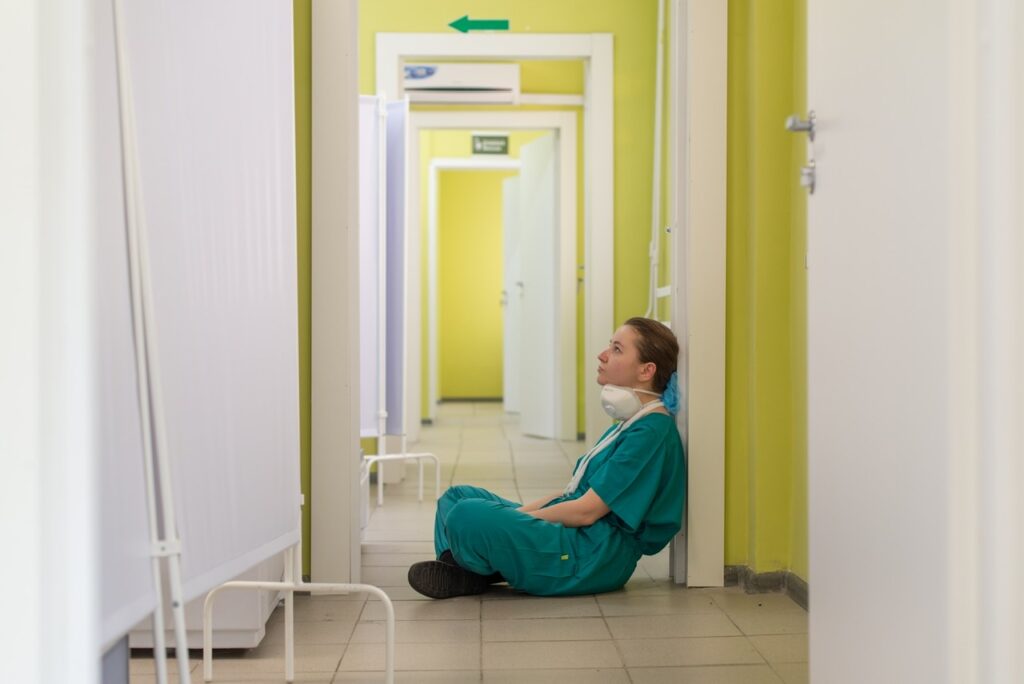Aged care providers have Coalition wrapped around their little fingers
Oct 6, 2020Locking out visitors has made it difficult for staff to meet the daily care needs of aged care residents. So said the royal commissioners. What an indictment on aged care providers. They receive billions a year in funding, yet they rely on the unpaid work of family, friends and volunteers to help with meals, exercise and care for their loved ones. Surely it is time for complete accountability for their government funding.

The federal government failed to prepare the aged care sector for the pandemic. So stated the special report released on Friday by the Royal Commission into Aged Care Quality and Safety.
And what was the response of the Minister for Health Greg Hunt and the Aged Care Minister Richard Colbeck? Did they finally take responsibility for the mistakes that led to the deaths of 642 older people in Victorian aged care homes or issue an immediate heartfelt apology?
No. Minister Colbeck responded with another cash announcement: a reannouncement of $29.8 million for a serious incident response scheme (first announced in July) and $10.8 million to enhance the skills and leadership of aged care nurses.
This has been their go-to response whenever deficiencies in aged care have been revealed – give more money to providers with few strings attached. The pandemic has already been a cash bonanza for aged care providers, with the federal government committing “more than $1.5 billion of additional funding measures to support aged care preparedness and response’ in 2020”, according to the royal commission.
And you can bet your bottom dollar there will be more to come in tomorrow’s budget.
Providers claim the rising costs of keeping residents safe from coronavirus has pushed them closer to breaking point. But where is the evidence? Show us how taxpayers’ money already provided has been spent.
Given that Aged Care Minister Richard Colbeck has refused 15 invitations to be interviewed on ABC 7:30, we probably shouldn’t be surprised about a lack of focus on the importance of financial transparency and ministerial accountability.
The commissioners made it clear in their report that they were concerned about the providers’ unilateral decision to keep residents of aged care homes locked in and family locked out, with some residents detained in their room for up to 66 days, something that has contributed to poor physical and mental health.
The Government’s first cash injection was a “$900 per bed support payment” (or $1350 for aged care homes in residential areas) to contribute to the extra costs of managing Covid-19, including costs associated with “screening visitors”. Yet most aged care homes locked out visitors, many in Victoria since March when the pandemic took off.
The commissioners also noted that the reduction in visitors had made it difficult for staff to meet the day-to-day care needs of residents. An extraordinary admission that points to how heavily private providers rely on the unpaid work of family members/friends and volunteers to help with meals, exercise and care for their loved ones. It appears only some providers used their additional funding to increase staff numbers. Others reduced staff numbers despite the increased workload.
As I pointed out on May 3, families were more worried their relatives in aged care would die of neglect than coronavirus.
It would have been timely to address the power relations and the legal and human rights issues inherent in the ongoing lockouts. As MichaelWest recently noted, detaining residents in their rooms is potentially illegal.
Instead, the commissioners recommended further funding to pay for additional staff to “facilitate visits” despite evidence that some providers will not use this extra money to employ extra staff.
Another recommendation was to increase the provision of allied health services, including mental health services, to residents in aged care homes. Levels of depression, anxiety, confusion, loneliness and suicide risk among aged care residents have increased due to the absence of visitors and, in some cases, being confined to their rooms for months.
Although the Health Minister recently increased access to mental health service for older people living in the community, this did not include older people living in aged care homes. Minister Hunt’s omission provided further evidence of government ageist attitudes to those in aged care. So, too, did the Prime Minister when he stated during Question Time:
“For those of us who have had to make decisions about putting our own family, our own parents, into aged care, we have known … we are putting them into pre-palliative care.”
With the average length of time an older person lives in an aged care home being 30 months, many older people move into an aged care home to live, not die.
While access to mental health services will be important, releasing residents from their rooms, allowing them to walk outside and ensuring their loved ones can visit will undoubtedly improve their mental health. Although aged care providers claim the lockdowns are to “save lives”, what type of life is it when you are confined to a room without seeing the people you love?
If visits by family reduces staff workload and improve residents’ quality of life, surely family members could have been taught infection control.
The commissioners also recommended aged care homes employ trained infection control officers as a condition of accreditation. A coroner recommended this eight years ago, back in 2012, after a fatal gastro outbreak in an aged care home.
Again, like so many recommendations from numerous inquiries, reviews, consultations, think tanks and task forces over past decade, the then Labor federal government ignored this recommendation.
The final sentence of the Royal Commission’s special report indicates that the commissioners are aware the aged care sector requires structural reform, but it has kicked the reform can down the road until next year, when it releases its final report. In the meantime, it recommends applying more band aids.
The contrast between the royal commissioners’ special report and the NSW Ruby Princess debacle could not be more stark. In NSW, the government held a public inquiry to not only identify the mistakes but also to make those responsible for the mistakes accountable. Federal ministers Hunt and Colbeck have not been held accountable for the deaths in aged care homes.
There is no indication that the Prime Minister, Health Minister or Aged Care Minister have learnt anything. They continue to make announcements that give the impression they are doing something. However, without tackling the systemic problems is the aged care sector, they are pouring money down the drain.
The horror story in aged care homes in Victoria due to community transmission could have been prevented if the prime minister, the federal health minister and the minister for aged care had listened to residents, families and staff, read the research evidence and acted on recommendations from all those inquiries. Instead they listened only to the usual suspects: the providers, the regulator and government-funded advocacy groups.




